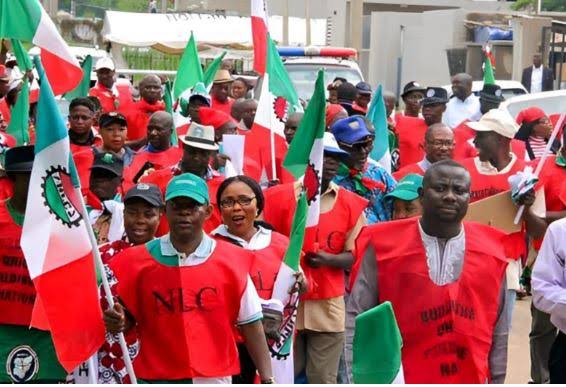The Nigerian government through the Presidential Compressed Natural Gas Initiative (P-CNGi) has attracted a 50 million dollar deal for the conversion of commercial vehicles to run on Compressed Natural Gas, CNG.
The P-CNGi programme director/chief executive, Michael Oluwagbemi, said this on Saturday during a Live programme on television tagged ‘’Compressed Natural Gas Roll Out: Prospects for Economic Growth.”
Mr Oluwagbemi said the deal, which was a private sector initiative, would enable the construction of CNG conversion workshop infrastructure across the country.
P-CNGi is a component of President Bola Tinubu administration’s palliative directed at providing succour to the masses, following the removal of fuel subsidy.
To alleviate the burden of rising fuel prices, the Federal Government allocated N100 billion from the N500 billion palliative budget to buy 5,500 CNG vehicles (buses and tricycles), 100 electric buses, and over 20,000 CNG conversion kits.
“We will be announcing on May 29, targeted conversion incentive programme for the mass transit sector.
“We are working with our partners in the mass transit sector, including the National Union of Road Transport Workers (NURTW) and the National Association of Road Transport Owners (NARTO), to determine modalities for providing the equipment and incentive,” he said.
He said the first phase of the initiative would roll out 100 conversion workshops and 60 refuelling sites across 18 states in Nigeria before the end of 2024.
“We are very well on track to meet all our objectives this year with respect to conversion centres, we are beginning to see the private sector jump in; as at Friday 85, conversion centre bidders were about to be completed.
“We expect 15 more to get started before the end of May; we will hit 100 targets before the end of 2024. The private sector leads and the government supports, it is definitely a good news for Nigeria.
“CNG is much safer in natural condition than PMS and Diesel, with bullet-proof container and high auto ignition temperature, almost one thousand degrees safer in natural condition than petrol,” he said.
In terms of reliability, he said it had regulations and standard developed by the Standards Organisation of Nigeria, SON.
He said a Nigerian gas vehicle monitoring system was also being established to ensure safety of operation from the point of conversion to the point of refuelling.
He said the National Automotive Design and Development Council, NADDC, and other agencies were also involved in promoting the initiative.
“Throughout the country we are rolling out conversion centres, we will be able to provide it at a subsidised cost and significant discount while allowing them to pay back slowly.
“For us as a government, it is not really subsidy, rather utilisation fund,” he said.
Also speaking, Mohammed Bawa, group managing director, ABG Group, said the Group had a partnership with banks to assist anyone willing to convert his or her vehicle.
He said since the initial investment was on the high side, the group could recommend for the bank to pay on behalf of anyone interested, while the person would repay over a period of time without interest.
“Nigerians are entrepreneurial by nature and always want an enabling environment and support by government.
“This government has taken the bull by the horn by putting in place the P-CNGi, which is doing a great job; automatically the private sector is already keying in.
“Not less than 20 private sector players have keyed into the CNG space and value chain, from conversion to refuelling. Now that the atmosphere is inviting, you will see many Nigerians investing in it,” he said.
He further said that before the end of May 2024, based on reliable information from the private sector, there would be at least six CNG refuelling centres in Abuja, as against only two stations currently.
Fuel subsidy removal caused an increase in transport fare, but the deployment of CNG vehicles is expected to reduce reliance on petrol and diesel thereby making transportation affordable and mitigate air pollution which aligns with the Paris Climate Accord.
Conversion of vehicles costs between N700,000 and N800,000, and vehicles can also operate on the energy mix of petrol and CNG after conversion safely.




